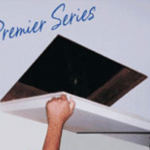 There have been some aftershocks of Hurricane Sandy in the real estate market that have been noted in the aftermath of the storm. For example, homes that had already been inspected have been reinspected – just in case there were any fresh damages caused by the storm. A press release from the Business Journals site describes the situations:
There have been some aftershocks of Hurricane Sandy in the real estate market that have been noted in the aftermath of the storm. For example, homes that had already been inspected have been reinspected – just in case there were any fresh damages caused by the storm. A press release from the Business Journals site describes the situations:
“Many home sales as well as contracts that are in progress will be put on hold until homes can be inspected or re-inspected for damages caused by the hurricane. If you’re selling your home, don’t be surprised if a buyer interested in your property wants a second inspection of your home. And if your home is under contract, be aware that properties in areas impacted by the hurricane may require another appraisal by the mortgage lender. Estimates at property damage range from $60 billion to as much as $90 billion to date on homes in seven states.”
The site lists a number of other factors as well: Fewer homes are listed, sales contracts are being put on hold, fewer people are looking to buy homes near the damaged areas, lower home prices, and, as a plus, there are lower interest rates. The article offers a summary of the situation:
“Hurricane Sandy has inflicted much damage to homes and businesses along the East Coast. It would be difficult to overstate the devastation of this storm,” Habib says. “To some, the storm could bear some bad news extending well beyond property damage. For potential home buyers, lower home prices and continued low interest rates may offer a small silver lining to an otherwise distressing situation. Ultimately, buyers who were on the fence may find that the cost of purchasing a home has become even more attractive,” Habib says. “That means good news for both home buyers and home sellers.”
Hurricane Sandy changed the landscape in more ways than one. I pray that the victims of the tragedy find a sense of peace and the help they need in this time of great need. About 50 members of Grace Presbyterian Church, who were able to go on a Saturday, went on a bus to Breezy Point, NY in order to help victims with the clean up of their homes. That’s the context of the photo of damages included in this post.
Tags: increased home inspections after Sandy, two inspections common after Sandy
